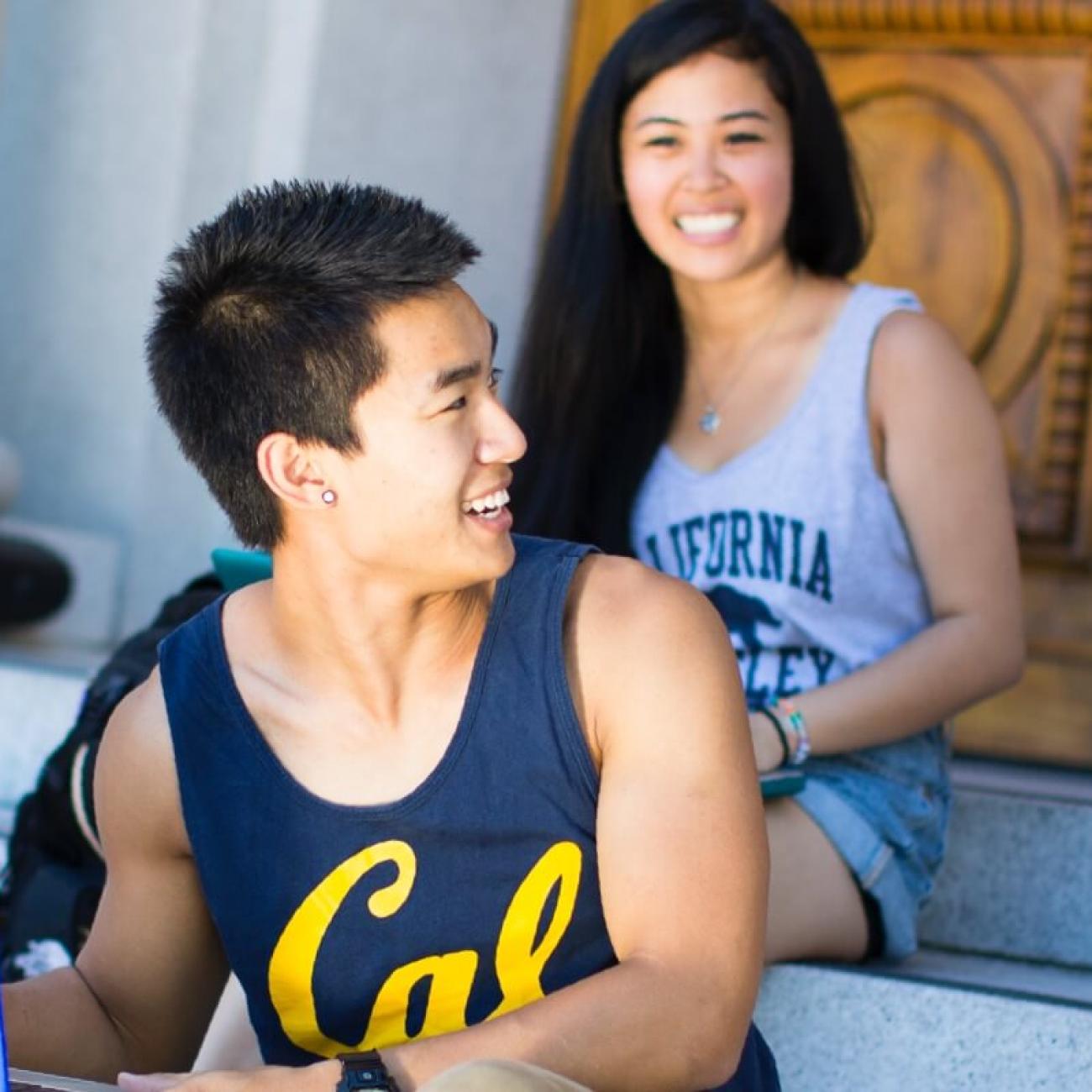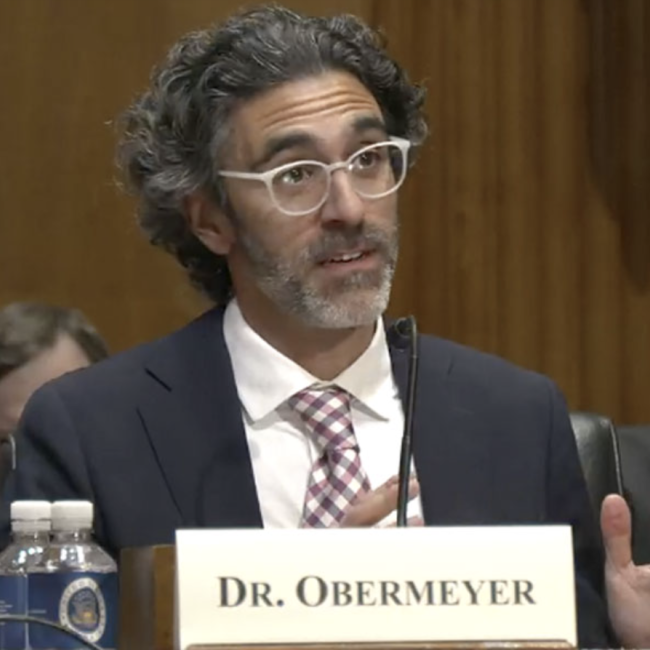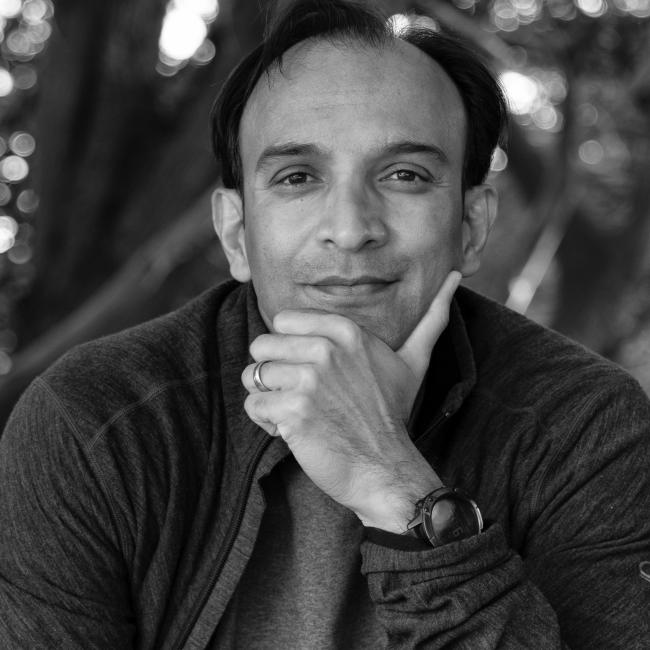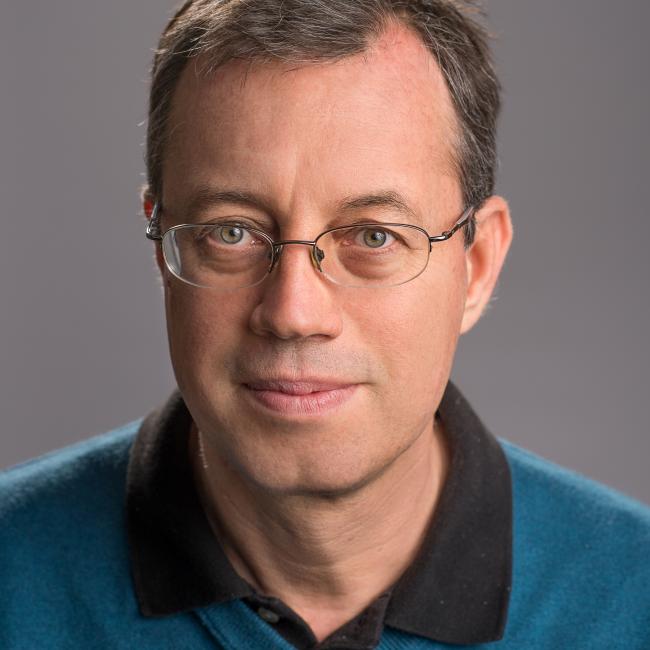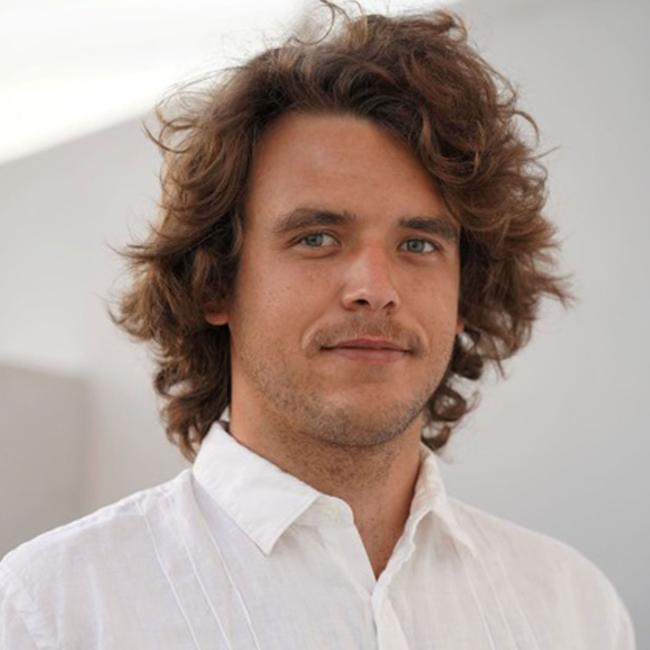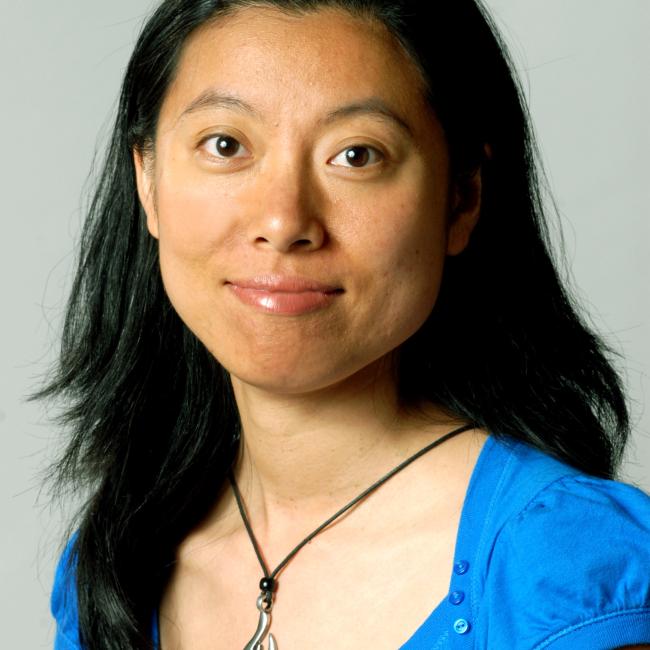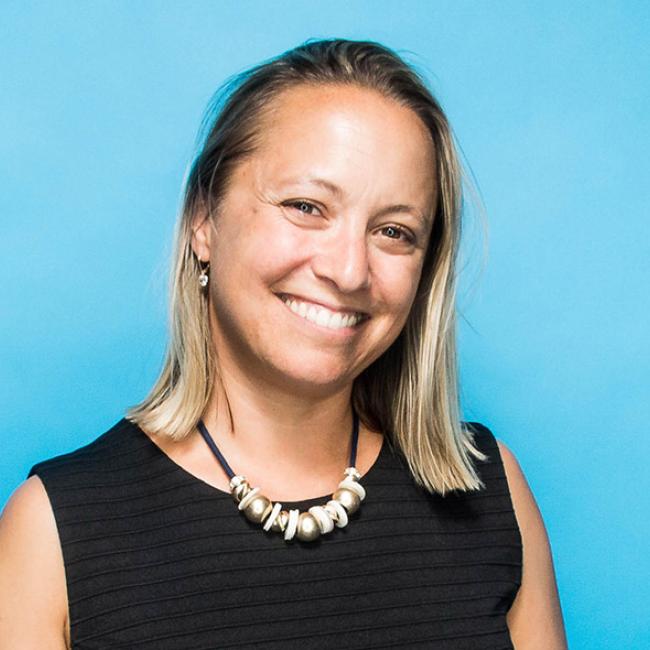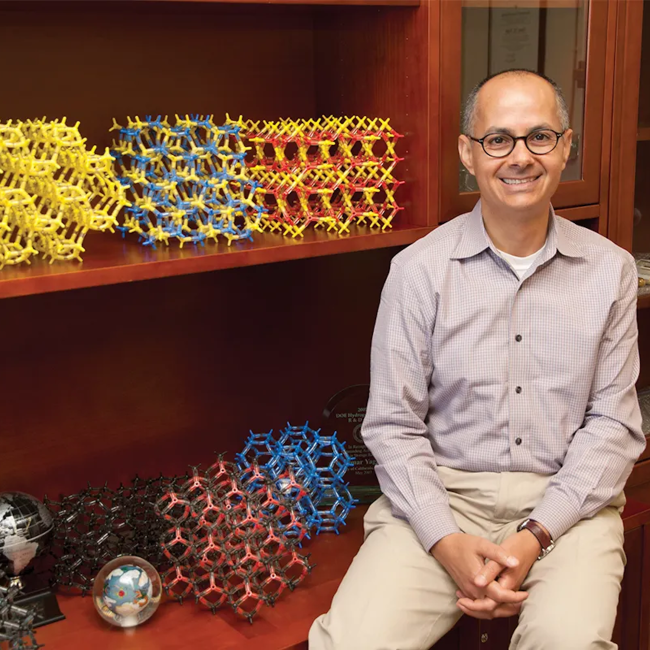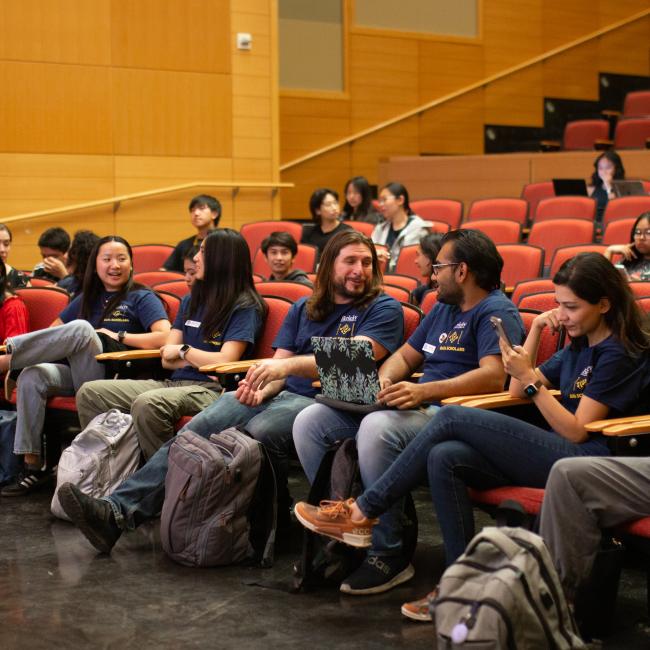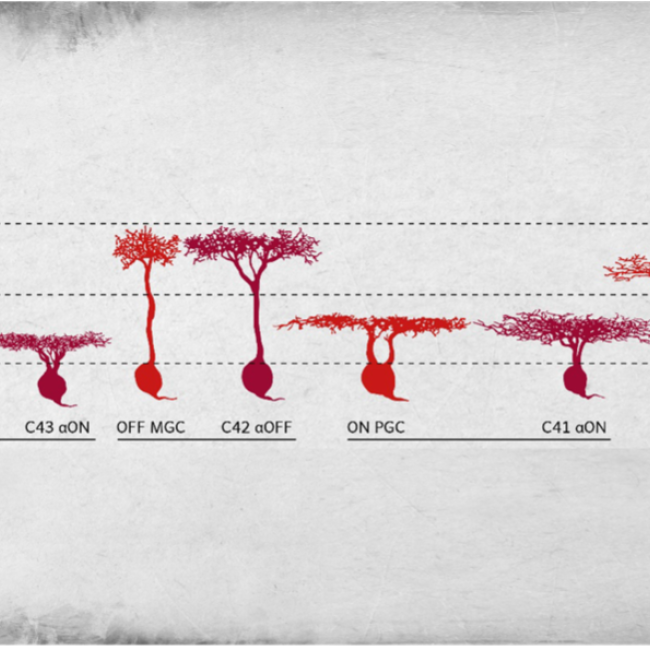Ziad Obermeyer testifies in U.S. Congress on how AI can help health care
Ziad Obermeyer believes that artificial intelligence can help doctors and others in the healthcare system make better decisions, improving health and reducing cost. He also thinks that without strong oversight, much could go wrong. On February 8, Obermeyer, Blue Cross Distinguished Associate Professor of Health Policy and Management at Berkeley Public Health and an affiliated faculty member for the UC San Francisco-UC Berkeley Joint Program in Computational Precision Health, warned the U.S. Senate Finance Committee about some of AI’s potential hazards within the healthcare field, and offered ways to ensure that AI systems are safe, unbiased and useful. The hearing, “Artificial Intelligence and Health Care: Promise and Pitfalls,” explored the growing use of AI in medicine, and by federal health care agencies.
DJ Patil to speak at CDSS’ inaugural undergraduate graduation ceremony
DJ Patil, who served as the first U.S. chief data scientist, will speak at UC Berkeley’s College of Computing, Data Science, and Society (CDSS) undergraduate graduation ceremony on May 16. Patil is the dean’s senior fellow and a member of the CDSS advisory board. He is also a general partner at the venture capital firm GreatPoint Ventures, where he aims to build healthcare, enterprise technologies and national security companies. Additionally, he’s a board member for Devoted Health, which he helped found and lead as chief technology officer.
Ion Stoica elected to National Academy of Engineering
UC Berkeley’s Ion Stoica has been named to the National Academy of Engineering, an honor that is among the highest that a professional engineer can receive. Stoica, a Department of Electrical Engineering and Computer Sciences professor and director of the Sky Computing Lab, received this distinction for his work on networked systems for large-scale data processing, analytics and machine learning. This is the latest recognition for Stoica, who is also an honorary member of the Romanian Academy, an Association for Computing Machinery fellow and a recipient of numerous awards. He co-founded the companies Databricks, Conviva and Anyscale.
Berkeley alum seeks to create a new paradigm in assistive technologies
Designing devices for people with disabilities requires more than engineering know-how; it requires a desire to understand the different ways we all interact with the world. For Corten Singer (B.A.’17 CS, B.A.’17 CogSci, M.S.’18 EECS), a self-described maker, nothing is more fulfilling than developing assistive technologies that make an impact on people’s everyday lives. Now, he’s poised to do just that. With fellow Berkeley alum Tomás Vega (B.A.’17 CS, B.A.’17 CogSci), Singer has co-founded Augmental, an assistive technologies company that has developed a unique tongue-controlled touchpad, MouthPad^. MouthPad^, which debuted this month at the Consumer Electronics Show (CES 2024), transforms the concept of the computer mouse or trackpad into a Bluetooth-enabled device that rests like a retainer on the roof of one’s mouth.
What experts are watching in 2024 related to artificial intelligence
Artificial intelligence was called “the buzzword of 2023” by CNN and referenced by countless media reports. The technology became increasingly visible in society as business leaders used it to restructure workplaces, people chose it as their romantic partners, criminals used it to cloud the public’s sense of reality and more. AI has enabled striking scientific and technological breakthroughs for previously intractable problems. At UC Berkeley, researchers developed AI-powered tools that helped a paralyzed woman speak with a digital avatar and informed policymakers for a global plastics treaty negotiation. They’re using AI to speed up the discovery of materials that could stem the impacts of climate change and developing platforms to revolutionize healthcare. And they’re developing methods to assess whether AI chatbots are trustworthy. We asked experts what areas or issues they’re watching related to artificial intelligence this year and where they anticipate change. Here’s what they shared with us.
Kristen Williams joins CDSS as Assistant Dean and ED of Individual Giving
Kristen Williams has been selected as assistant dean for development and external relations and executive director of individual giving at UC Berkeley’s College of Computing, Data Science, and Society (CDSS). She started in the new role on Jan. 3. Williams is a successful fundraising professional with nearly 20 years of experience at Berkeley, having served as assistant dean for external relations most recently at the School of Information.
Chemist Omar Yaghi wins Solvay Prize for climate, materials breakthroughs
UC Berkeley’s Omar Yaghi has been awarded the renowned Science for the Future Ernest Solvay Prize by Syensqo. The award honors chemistry leaders whose discoveries are shaping the future of the field and humanity. Yaghi is being recognized for pioneering reticular materials that can help combat the impacts of climate change, Syensqo announced. The ultra porous materials – known as metal-organic frameworks (MOFs) and covalent organic frameworks (COFs) – are unlocking groundbreaking solutions for threats like water scarcity, air pollution and energy production. “Omar Yaghi is a true explorer and his work is likely to have a tremendous impact in advancing humanity,” said Ilham Kadri, chief executive officer of Syensqo.
Computer science, data science, statistics majors move to new college
The computer science, data science and statistics undergraduate majors leading to Bachelor of Arts degrees are now administered by UC Berkeley’s first new college in more than 50 years. Following university approval in December, the College of Letters & Science transferred these majors and a statistics minor to the College of Computing, Data Science, and Society. The new college will oversee these programs as part of its mission to help develop tomorrow’s diverse, knowledgeable and ethical data leaders. "Students demanded the creation of this college," said Deborah Nolan, the college’s associate dean of students. “The transfer of the major programs is a natural next step, bringing students into the CDSS home.”
Small solar sails could be the next ‘giant leap’ for interplanetary space exploration
Nearly 70 years after the launch of the first satellite, we still have more questions than answers about space. But a team of Berkeley researchers is on a mission to change this with a proposal to build a fleet of low-cost, autonomous spacecraft, each weighing only 10 grams and propelled by nothing more than the pressure of solar radiation. These miniaturized solar sails could potentially visit thousands of near-Earth asteroids and comets, capturing high-resolution images and collecting samples. Led by Kristofer Pister, professor of electrical engineering and computer sciences, the researchers seek to leverage advancements in micro-scale technology to make interplanetary space exploration more cost-effective and accessible — and to accelerate new discoveries about our inner solar system. They describe their work, the Berkeley Low-cost Interplanetary Solar Sail (BLISS) project, in a study published in the journal Acta Astronautica. The BLISS project brings together researchers from the Department of Electrical Engineering and Computer Sciences and the Department of Mechanical Engineering, as well as the Berkeley Sensor and Actuator Center and the Space Sciences Laboratory.
Cell types in the eye have ancient evolutionary origins
Karthik Shekhar and his colleagues raised a few eyebrows as they collected cow and pig eyes from Boston butchers, but those eyes — eventually from 17 separate species, including humans — are providing insights into the evolution of the vertebrate retina and could lead to better animal models for human eye diseases. The retina is a miniature computer containing diverse types of cells that collectively process visual information before transmitting it to the rest of the brain. In a comparative analysis across animals of the many cell types in the retina — mice alone have 130 types of cells in the retina, as Shekhar’s previous studies have shown — the researchers concluded that most cell types have an ancient evolutionary history. These cell types, distinguished by their differences at the molecular level, give clues to their functions and how they participate in building our visual world.

